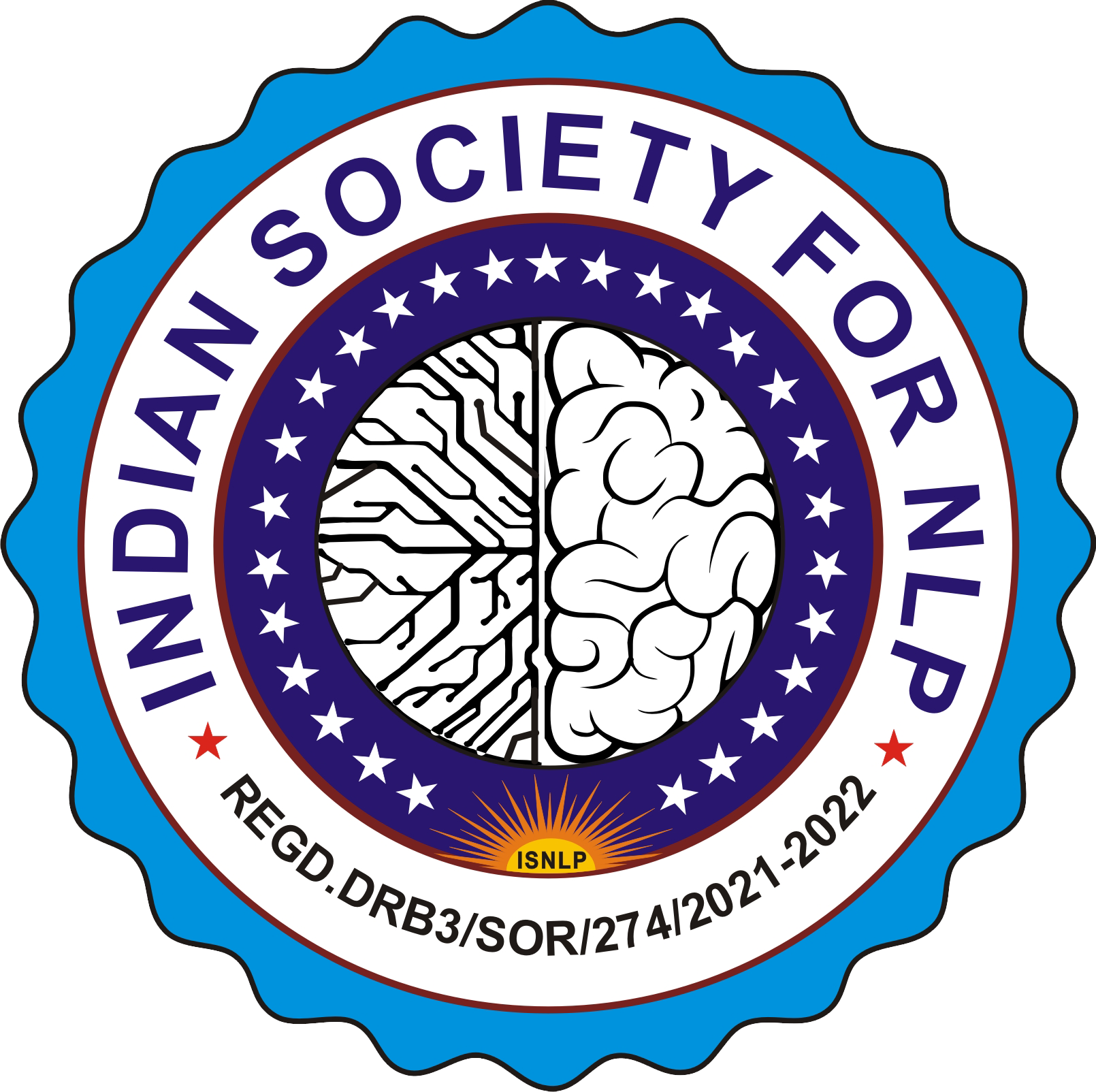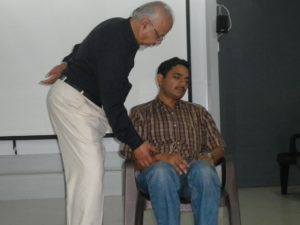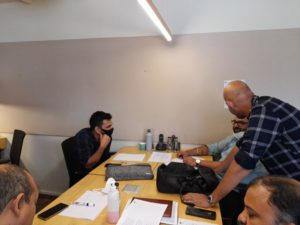Why Choose ISNLP
What ISNLP Does
ISNLP International is an organisation offering impartial and independent advice and welcoming NLP Professionals from a variety of backgrounds, whilst supporting the community by being the Global Flagbearer for Professional NLP.
You may be surprised at the extent of our work in the field of NLP…
As a Community Interest Company (CIC), it is our raison d’etre to promote NLP, the NLP Community and our members by providing them with an independent Professional Body that enables them to raise the standards of their practice and professionalism.
So we do some other “stuff” as well…
We strive for positive changes that will impact upon the field of NLP. Recent work includes setting membership standards for Professionalism in NLP, getting ISNLP membership accepted as a Professional Subscription by HMRC and having NLP Practitioner confirmed as a recognised job description.
We produce a range of publications for the benefit of the NLP Community –
Rapport which offers a quarterly update on the NLP world with news, stories, case studies, business tips, practice groups and an update to the events being put on by our members.
Acuity, enhancing and advancing NLP through its anthology of shared findings and learnings.
Current Research In NLP, a peer reviewed journal that covers the academic research being carried out globally to support NLP Professionals in their work.
We support research in NLP – we have sponsored three Research Conferences and now run research streams within the NLP International Conference. The Research Journal, Current Research in NLP was launched in the Houses of Parliament in 2009, thus raising the profile of NLP amongst MPs.
We unite the community – globally, ISNLP collaborates with the other main international associations. Our Regional Ambassadors and International Ambassadors work with their local communities to raise the profile of NLP and ISNLP.
We support the NLP community – as well as providing a range of platforms and groups for NLP Professionals to unite, chat and share their experiences Including our community cafes and FB live Q&A sessions), we also provide resources and support packs for Practice Groups around the UK and abroad. Our NLP Specialist Envoys are on hand to provide expert advice and media comment when required.
…and all of this is done by a small team who are dedicated to promoting great NLP delivered by our fantastic NLP Professional Members!
What ISNLP Doesn't Do
Membership of ISNLP will do a great deal for your credibility and we give you a myriad of resources to empower you to succeed as an NLP professional…and it is very much up to you how much you wish to make of your ISNLP membership.
Even though we give YOU the tools to promote yourself and your business through our website and Members Resources, there are some things that we are unable to do and/or get involved in.
Offer NLP Training, Coaching or Consultancy
ISNLP is neither an NLP training organisation nor an NLP Consultation Business – our members are! This is a deliberate and conscious choice because if we were to offer training in NLP or NLP Coaching or consultations, we would be competing with our members, which would be a clear conflict of interest. We are independent and our independence allows us to hold the space for our Members to practice to the best of their ability. When we say our role is to empower NLP professionals, we mean it.
Find you clients
Membership of ISNLP allows you to set up your own, searchable, online members profile that showcases you, your company and your areas of expertise. Your membership gives you many tools to elevate yourself in your community or area of expertise and, we are not a client sourcing agency.
Feedback from FORMER members has been that they have not had any business from using the ISNLP website. Our question has been ‘How do you know?’ and as a result, we have developed further stats for you to access via your members profile, which indicate how many searches you have appeared in through to how many of our website visitors have clicked through to your website.
Our research has shown that these members DO get shown in search results, however, they have not completed (or in most cases, even started) to set up their online profile.
Our stats indicate that those members who set up their online profile are eight times more likely to have their profile selected when they appear in an online search than those who have not completed their profile at all.
We strongly recommend that you complete the Online Profile and upload an appropriate photo so that potential clients can see who they will be engaging with. Please remember: if you have an informative and complete profile, potential clients can find out what you do, what your expertise is, who you work with and what you look like. Without this information at their fingertips, they will be less likely to contact you!
Offer one-to-one support, consultancy or advice
We provide support resources for many of the queries relating to the administration of your membership in addition to the Member Resources available on your member dashboard. However, membership fees do not include one-to-one consultancy support or advice on how to start, build, grow or expand your business or many aspects that are outside the remit of ISNLP eg computer support, technical or legal advice. ISNLP do have business experts who operate as independent consultants that can be engaged by you directly to support you in your business growth or specific areas of business expertise.
In the same way, ISNLP staff are not in a position to act as your administration, finance or support staff. If you do require that level of service support, we can recommend resources for you to investigate further.
Get involved in legal disputes
If you are involved in a legal dispute, ISNLP are unable to manage this as part of a formal or informal complaint. Legal action, either civil or criminal, has legislative protocols to be followed and if any membership complaint is brought alongside legal action, the complaint will be deferred until the legal dispute has been resolved. ISNLP will only get involved if called by any party to act as an expert witness. ISNLP strongly advise members to have appropriate insurance in place to protect themselves and their clients. Some insurance providers will offer legal cover as part of the policy or for additional fees. Please ensure that you are adequately covered for your needs.
Handle complaints raised against non-members
On average, less than 5% of complaints received by ISNLP can be managed through the complaints process because ISNLP can only deal with complaints brought against members. Most complaints received by ISNLP are about practitioners who are not members of ISNLP. This demonstrates several things.
Our Code of Ethics works! Our members abide by the Ethics of ISNLP and are professional in delivering their services… and this reduces the scope for complaints!
Whilst we sympathise with the plight of the general public when they choose NLP for their training, corporate or personal needs, we are unable to apply our Complaints Procedures to non-members on their behalf. We simply do not have any jurisdiction. We DO guide the public to seek resolution through the appropriate channels left open to them.
It is important that your clients understand that they are working with a member of ISNLP. This gives them the confidence that there is a Code of Ethics and a Complaints Procedure that protects them. This is why it is so important to carry out due diligence before engaging the services of an NLP professional.
Member-to-Member mediation
There may be time when you, as an ISNLP member, are in a state of disagreement with another ISNLP member. ISNLP will not be involved as an arbiter in any dispute between members. Firstly we advise that you resolve your dispute amicably and with respect for each other’s map of the world. If you believe that your dispute requires independent intervention, we suggest that you engage the services of a mutually agreed independent arbiter or an authorised/qualified Dispute Resolution Consultant (DRC). The DRC will be able to guide you further and advise on the legal implications (if any) of your dispute.
If there is a clear breach of the ISNLP Code of Ethics, then a complaint may be handled through the normal channels.
Why choose ISNLP membership
ISNLP gives you a framework in which to operate and practice your NLP Skills… Ethically, Professionally, Independently and with Credibility.
We believe that you would choose to join ISNLP because you agree with our company ethos and because you value our independence, professionalism and reputation for encouraging best practice amongst NLP Professionals. We also believe you will appreciate the ISNLP Leadership Model that forms the heart of everything we do to serve and support you.
Of course, we have a range of benefits to offer you and we give you a choice of membership levels to suit your particular requirements as an NLP Professional, whether you are just starting out, have a wealth of experience or simply need membership of your professional body to satisfy your employer.
Membership of ISNLP gives you a self-regulatory framework (which includes your membership Code of Ethics and our independent complaints procedure) as well as your members logo, so you can demonstrate to your potential clients that you share professional values and are willing to act responsibly and ethically in this unregulated field.
ISNLP membership can help you to:
● Increase your credibility
● Demonstrate your professionalism
● Raise your profile
● Give you an opportunity to find and interact with like-minded individuals
What’s In It For You?
Membership of ISNLP gives you tools to start, build and grow your NLP business
- You have the opportunity to complete your member profile and showcase your skills.
- You can advertise on the website and in Rapport magazine at a discounted rate.
- You can join the exclusive ISNLP Members Only Facebook Group and ask questions and for advice of and from your ISNLP peers.
- You can advertise your upcoming courses and events free of charge.
- You can start a practice group and receive an ISNLP practice group pack free of charge (subject to approval).
- You can read Rapport magazine online each quarter.
- You can search hundreds of articles, case studies and stories to add to your learning.
…and much, much more!
Download the ISNLP Membership Brochure
Over the years, we have been lucky enough to receive many positive testimonials about the services we offer and we hope you will take a moment or two to read what other people have to say about us.
ISNLP is a social enterprise (in the form of a Community Interest Company) and is accountable to the CIC Regulator. We belong to Social Enterprises (UK) and we were winners of the Hertfordshire Business Awards ‘Small Business of the Year’ awarded in November 2009 and the UK Enterprise Awards ‘Best UK Community Interest Company’ in 2020
We are here to provide unbiased information for the general public and promote the benefits of NLP so that they can contact you, an NLP Professional, with some knowledge and understanding about what to expect. Their due diligence will give them the confidence that a member of ISNLP upholds the ISNLP Code of Ethics and delivers best practices in NLP.
To choose the membership package that is relevant for you, click here.
Why to Choose a member of ISNLP
ISNLP Members can choose to apply for their Professional Standards Certicate, at Bronze, Silver or Gold level.When choosing an NLP professional or trainer for your personal or professional development, it is essential that you pick the right person for you.
So, what does the ‘right person’ mean?
This means that they meet requirements you have identified…that they have the appropriate knowledge, certifications and skill sets you want, that they are trustworthy, are committed to delivering the highest quality NLP and to act in an accountable, ethical and responsible way.
And, there are lots of NLP professionals and trainers who can deliver this service to you. However, because NLP isn’t regulated and it can sometimes be a challenge to identify who does and doesn’t meet these criteria.
So, why choose an ISNLP Member?
All ISNLP members have to go through certain minimum processes to become a member:
- Qualifications: All member’s qualifications and certificates have been checked and verified by ISNLP staff.
- References: All members provide external references from either previous clients or supervisors to validate previous work that they have done.
- Code of Ethics: All members sign up to and adhere to our Code of Ethics, which state that they will practice NLP in a responsible, ethical and congruent way.
- Complaints Procedure: All members are accountable via the ISNLP independent Complaints Procedure, in the unlikely event that an issue should arise.
Please note: if you engage the services of an NLP Practitioner who is not a member of ISNLP, we will not be able to assist you if you wish to raise a complaint at any time.
In other words, we do some of your due diligence for you!
By having these strict processes in place, we are confident that we can promote ISNLP members as responsible people who will deliver a professional service. In addition to these minimum requirements adhered to by all ISNLP members, they can choose to apply for their Professional Standards Certificate at the Bronze, Silver or Gold level.
The additional elements of professional practise that can be undertaken by an ISNLP member as part of their Professional Standards, include:
- Holding Professional Insurance
- Undertaking regular CPD
- Delivering a certain number of client hours
- Peer mentoring or practice group attendance
- Supervision
What others Say
- Testimonials for ISNLP Member Services
- Testimonials for the ISNLP Accreditation programme
- Testimonials for Rapport Magazine
Testimonials for ISNLP Member Services
Add testimonial description here. Edit and place your own text.Add testimonial description here. Edit and place your own text.Add testimonial description here. Edit and place your own text.Add testimonial description here. Edit and place your own text.Add testimonial description here. Edit and place your own text.

John Doe
Codetic
ISNLP Leadership Model
The ISNLP Leadership Model is based around active listening and proaction. We do this well because we:
- invite feedback from our members and act in service to and in support of them.
- remain unbiased and serve the whole NLP Community because we are independent of any training organisation and receive no funding or financial support from any training school.
- create cohesion within the community by holding the space for all members to be heard.
We have a collaborative Leadership Model based upon service and support…there is no ‘self appointed leader ruling the community’, hence our upside down triangle of support. We recognise that NLP Professionals are very capable of making their own decisions about what is best for their business and we provide a well-formed, self-regulating framework to support them in doing this.
We achieve our outcomes because we hold the space for the NLP Community as well as the members of ISNLP. We create the right balance by providing structures and support mechanisms that are loose enough to empower members in their own right and tight enough to provide frameworks that the members can utilise in their own business…and all of this is done within a collaborative framework. We have no attachment to the outcome of any project, as long as it achieves our high level intentions of encouraging ethical and best practice in NLP.
ISNLP Complaints Procedure
In the unlikely event of a complaint being raised about a member of ISNLP, there is a specific procedure that will be followed.
Stage 1 – INTRODUCTION
Aim
The aim of the Complaints Procedure is to afford protection to the public and to protect the name of ISNLP and the profession of NLP as conducted by individual Members of ISNLP.
Bringing a complaint
A complaint can be brought by either:
- A member of the public seeking or using a service provided by a Member of ISNLP
- A third party representative of the person seeking or using the service provided by a member of ISNLP, if
o the person is a minor (ie under 18)
o is classed as a vulnerable adult who cannot make their own representations.*** - In these cases, ISNLP requires evidence to indicate they have authorisation to act as a third party representative.
***Note: Please refer to the ISNLP Safeguarding Policy – Glossary for the ISNLP definition of a vulnerable adult.
Complaints against non-members
ISNLP cannot deal with complaints against individuals or organisations who were not members of the Association at the time of the alleged complaint.
Timescale
A complaint must be lodged within 6 months of the alleged breach.
Validity
The complaint must satisfy the following conditions:
a) It is brought in accordance with the criteria listed above.
b) The allegation is of a breach of a specific clause or clauses of the relevant ISNLP Code of Ethics or ISNLP Trainers Code of Ethics in force at the time the alleged breach occurred.
c) The Member complained against is named and was a Member of ISNLP at the time the alleged breach occurred.
d) It is in writing, signed and received by ISNLP.
A complaint not satisfying the above conditions will be rejected.
Dual accountability
ISNLP may decide to hear a complaint against a member when another organisation is involved in a similar process arising out of the same substantive matters. Where a complaint is being heard against a member by a Statutory Regulatory agency, ISNLP will defer to their process. On completion of any statutory process, ISNLP will pick up the complaint, taking into account any findings by the Statutory Regulatory Agency. If another agency is involved which is non regulatory, ISNLP reserves the right to work in conjunction with that agency and hear the complaint jointly.
Resolution
Before making a complaint to ISNLP, the Complainant is expected to attempt to resolve the issue with the Member. The Complainant must demonstrate that all informal channels, internal processes and procedures have been exhausted. If local resolution is impossible or inappropriate, an explanation as to why this is the case will be required.
Findings
ISNLP reserves the right to distribute any findings upheld against a member where it considers it right and just to do so in all circumstances. The decision of the Complaints Panel, together with details of any sanction, may be published in Rapport Magazine and/or the ISNLP website in such detail as deemed appropriate to the findings and at its discretion. Such decisions will be based on considerations of public interest and the severity of the findings.
Stage 2 – COMPLAINTS PROCESS
1. All complaints to ISNLP will be treated the same whatever it is regarding.
2. Within 3 working days of receipt, the Admin Team will check to see if the complaint is regarding a current member.
If NO – follow on to step 3.
If YES – proceed to step 4.
3. The Admin Team will inform the complainant that no action can be taken. No further action now needs to be taken.
4. The Admin Team will send the Complaint Form to the Complainant to be completed and submitted together with all evidence and details of the complaint. The Complainant has 4 weeks (20 working days) to submit the completed form and evidence for review.
If completed form not received – follow on to step 5.
If completed form received – proceed to step 6
5. The Admin Team will contact the Complainant with the follow up email to state complaint has now been closed.
6. The Admin Team acknowledge receipt of the completed form and contact the Member to advise a complaint has been received and provided with relevant details, which may include Personally Identifiable Information (PII) unless the Complaints Form declaration requests non-disclosure of PII, in which case the form will be redacted. The Member is given 7 days to provide their statement/account.
7. In conjunction with Step 6, the Admin Team requests a volunteer Chief Adjudicator from the Complaints Team to initially assess the complaint.
8. Once the Chief Adjudicator has been appointed, the Admin Team will send all details of the complaint (from both the complainant and the Member) to the Chief Adjudicator.
9. The Chief Adjudicator will initially assess the complaint and check its validity, in order to determine whether or not the complaint can be accepted. The Chief Adjudicator notifies the ISNLP Admin Team of their decision.
If the complaint is NOT accepted – follow on to step 10 and 11.
If the complaint IS accepted – proceed to step 12.
10. The Complainant and Member are notified of the decision, including the reasons as to why the complaint is either not valid or not accepted and will not be taken any further.
11. As long as the complaint meets the criteria for validity, the Complainant has the right of appeal at this stage and can request the complaint is taken to the next stage (step 12), despite the assessment of the Chief Adjudicator. If a complainant chooses this course of action, they will be asked to contribute to the costs of running a Professional Conduct Hearing. Any appeal must be lodged with the ISNLP Admin Team within 7 days of the notification email being received.
12. The Complainant and Member are notified of the decision to proceed with the complaint.
Depending on the seriousness of the complaint, The Admin Team will contact both the Complainant and the Member to see if the complaint can be resolved through informal mediation conducted via the Chief Adjudicator. Both parties will be given options at this stage from the Chief Adjudicator liaising with the Admin Team for assistance. Following liaison, it will be the decision of the Chief Adjudicator as to whether or not the informal resolution will be pursued in the first instance. If one or both parties refuses this offer, the matter will proceed to a Professional Conduct Hearing and the party (or parties) that have refused to participate will be expected to contribute to the costs of running a formal hearing.
If YES to an informal resolution – follow on to step 13.
If NO to an informal resolution – proceed to step 14.
13. The Chief Adjudicator, together with an ISNLP representative, will mediate between all parties with a view to achieving an informal resolution. Alternatively, both parties will be invited to engage with a Dispute Resolution Service provider.
If an informal resolution can be reached, the Admin team will contact the Complainant and the Member confirming the informal resolution to the complaint and actions agreed. It will be the Admin Team’s responsibility to ensure this happens. No further action now needs to be taken.
If there is no resolution via the informal route, this matter will proceed to a Professional Conduct Hearing. The mediator will be asked to provide a report which will form part of the evidence at the Professional Conduct Hearing.
If an informal resolution cannot be reached, proceed to step 14.
14. The complaint will now be dealt with at a formal hearing known as The Professional Conduct Hearing.
Stage 3 – PROFESSIONAL CONDUCT HEARING
A. The purpose of The Professional Conduct Hearing is to examine the complaint and decide whether or not it is upheld, based upon the evidence. The Complaints Panel will decide whether any sanction should be imposed from this hearing.
B. The Chief Adjudicator will instruct the Admin Team to appoint a panel of no less than two other people selected from members of the Complaints Team (thus making a panel of minimum three people, including the Chief Adjudicator). At least one person on the panel will be a professional person who does not work for ISNLP or any other NLP organisation.
These persons shall now be known as the Complaints Panel. The Complaints Panel must be appointed with regard to Equalities and Diversity legislation. Members of the Complaints Panel have a duty to declare any interest which may be considered by the Chief Adjudicator to affect their impartiality, or likely to be thought to do so.
ISNLP will also appoint a representative to attend the Hearing – their presence is as an observer and to advise on points of procedure that may arise during the hearing.
C. The Admin Team will invite the Complainant and the Member in writing, to appear at The Professional Conduct Hearing and will liaise with all parties to establish a hearing date for The Professional Conduct Hearing. This date will be a minimum of eight weeks from the correspondence date
D. The Admin Team will send the Complainant and the Member the Professional Conduct Hearing Preparation Email, detailing the deadlines and requirements to be met by all parties before the hearing.
These details and requirements include:
- When appearing at The Professional Conduct Hearing, the Complainant and the Complained Against may each be accompanied by a representative who may support and or/speak on behalf of the party concerned.
- Written evidence and/or submissions and witness statements must be submitted in advance by the Complainant and the Member. Such papers must be received by the Admin Team at least 28 days prior to the date fixed for The Professional Conduct Hearing.
- These papers will then be circulated from the Admin Team to the Complaints Panel, the Complainant and the Member no less than 21 days prior to the hearing.
- The Complaints Panel, Complainant and the Member may appoint witnesses they wish to attend the hearing. Any witnesses must have already submitted written evidence (Section 6b) Parties wishing to call witnesses must notify the Admin Team of the names and details of such witnesses no less than 28 days prior to the date fixed for the hearing. The witness list will be reviewed by the Complaints Panel and any witnesses required by the Complaints Panel will be selected at least 7 days prior to the hearing.
- The Admin Team will notify the Complainant and Member of the witnesses required and the witnesses will be contacted directly by the relevant party. Attendance will only be permitted by the Chief Adjudicator if the witness has supplied a written statement which needs clarification. The Complaints Panel has discretion to refuse attendance by a witness if it reasonably believes that such attendance is not relevant or will not add any weight to the issue(s) under consideration. During the hearing, there will be an opportunity for witnesses to be questioned by the panel and either party connected with the case.
E. The Admin Team makes up and circulates Complaints Packs to all parties at least 21 days prior to the Hearing.
F. The Panel meets with ISNLP to review the case and plan their approach, no less than 10 days before the hearing. The Panel advises ISNLP of any witnesses they wish to question.
G. The Admin Team contact both parties with confirmation of witnesses to be questioned during the hearing.
H. The Professional Conduct Hearing is held – For what happens on the day during the Professional Conduct Hearing, please refer to the Professional Conduct Hearing Agenda.
I. If either the Complainant or the Complained Against fails to attend The Professional Conduct Hearing without providing sufficient reasons as to why, the Chief Adjudicator will then decide one of the following;
- To proceed with the hearing in the absence of one of the parties.
- To adjourn the hearing to a date no less than 28 days in advance.
- To terminate the proceedings.
- In these circumstances, both parties will be emailed by the Admin Team with information supplied by the Chief Adjudicator as to the outcome.
J. Once the Professional Conduct Panel Hearing has taken place, The Complaints Panel deliberate on the evidence provided and reach a decision. They may seek guidance from ISNLP at any point during this process. The Complaints Panel have 28 days from the date of the Hearing to formally document their decision and any other relevant information in a Professional Conduct Hearing Report. Once finalised, this report is sent to ISNLP for review.
K. Once reviewed The Admin team will circulate the Professional Conduct Hearing report to both the Complainant and the Member informing them of the outcome.
The decision of the Complaints Panel at The Professional Conduct Hearing is final.
The only right of appeal is if the documented processes laid down in this policy were not correctly followed and as a result, one party was disadvantaged. If this is the case, an appeal should be made in writing to the ISNLP Admin Team within 7 days of receipt of the outcomes email, evidencing where any breaches of process occurred. The Appeal will be reviewed by a member of the Complaints Panel who was not previously involved in the original process.
L. It is the duty of the Admin Team, with support from the Complaints Panel if required, to ensure any sanctions are carried out.
Downloads
PDF – Complaints Policy, including Complaints Process and Professional Conduct Panel Hearing
Member Code of Ethics
All of our ISNLP Members agree to and abide by the Members Code of Ethics
All members of ISNLP shall:
- Respect the dignity and worth of every human being, and their right to self-determination.
- Strive to act with integrity, independence and impartiality, avoiding conflicts of interests and acting in accordance with the presuppositions of NLP.
- Represent themselves, their qualifications, experience and membership of professional bodies honestly and also (to the best of their knowledge) the skills, qualifications and experience of any third party to whom they refer any of their clients.
- Recognise their scope of practice and only practise NLP within the limits of their competency and to their highest possible standards.
- Strive to act within an ecological framework to ensure the safety of their client at all times.
- Represent NLP interventions as an option and at no time as a certain solution for any given problem.
- Act as ambassadors for NLP, so that it is presented as a professional and effective approach that can help people and organisations; avoiding bringing NLP into disrepute.
- Act as ambassadors for ISNLP, to promote its purposes and activities to a wider audience; avoiding bringing ISNLP into disrepute.
- Respect legitimate needs and requirements for confidentiality.
- Respect the variety of different styles of NLP and complementary professions.
- Respect fellow members’ interests and avoid soliciting other members clients away from them.
- Ensure that clients` expectations, and the basis on which they will be met, are understood by both parties and that contractual arrangements are not changed without appropriate discussion.
- Act within the law and not encourage, assist, or collude with others engaged in unlawful conduct.
- Declare to ISNLP any criminal conviction (except motoring conviction resulting in points on licence), and professional complaint against them or any other matter which may affect their ISNLP membership, good conduct or practice in any way.
- Members (above Associate level) have an ongoing requirement to update their skills and knowledge, through mentorship and/or pursuing recognised CPD requirements.
ISNLP recommends that no member works with people under the age of 18 or vulnerable adults unless they are specifically qualified to do so and have appropriate clearance with national vetting procedures in their country(ies) (any and all) of practice.
Disclaimer: The Code does not assume that individual members possess particular levels of skill in any specific area; it is important, therefore, that users of members` services do satisfy themselves that the person they are working with is appropriately skilled. ISNLP International will deal with any infringements of the Code of Ethics through its Complaints and Disciplinary Procedure.
Trainer Code of Ethics
All Trainers and Accredited Trainer members of ISNLP abide by the Trainers Code of Ethics as well as the Members Code of Ethics.
The purpose of this Code of Ethics and Practice is to establish and maintain standards of conduct for NLP trainers and to inform and protect members of the public seeking training in NLP, whatever the level or length of the training course. Both in the explicit training they conduct and in the examples they set, NLP trainers are in the forefront of shaping the public perception of the integrity and value of NLP.
Much information and learning material on NLP is available in the public domain in a variety of media and is subject to copyright and licensing rules. Much unpublished material which is the intellectual property of researchers, developers and trainers is made available to trainees participating in training courses. It is in everyone’s interest that the ownership of such intellectual property is acknowledged.
During an NLP training course, trainees may find themselves in a vulnerable situation where painful and potentially difficult material may be revealed which needs handling in a caring and sensitive manner. It must be made clear beforehand that the objective of the training course is learning and not ongoing personal therapy.
This Code of Ethics and Practice applies equally to core training staff, training assistants and visiting or occasional trainers and assessors on recognised NLP training courses. Please note that the Code of Ethics and Practice for NLP Trainers is in addition to the ISNLP Members of Ethics, to which all members of ISNLP agree.
ISNLP Trainers Code of Ethics
- Trainers are responsible for observing the principles embodied in this Code of Ethics and Practice and the current codes of any professional bodies of which they are members. They are responsible for introducing trainees to the ISNLP Code of Ethics at an early stage in the training course.
- Trainers must recognise the value and dignity of trainees with due regard to issues of origin, status, gender, age, beliefs, sexual orientation or disability. Trainers have a responsibility to be aware of their own issues of prejudice and stereotyping and particularly to consider ways in which this may be affecting the training relationship.
- Trainers have a responsibility to encourage and facilitate the self-development of trainees.
- Trainers are responsible for establishing and maintaining appropriate boundaries between themselves and trainees so that working relationships are not confused with friendship, sexual or other relationships.
- Trainers must not exploit their trainees financially, sexually, emotionally or in any other way.
- Visiting or occasional trainers on training courses must ensure that they take responsibility for any pre-existing professional or personal relationship with any member of the training group.
- Trainers should commit themselves to continuing professional development as trainers.
- Trainers must regularly monitor their training work and be able and willing to account to trainees and colleagues for what they do and why.
- Trainers must regularly monitor and evaluate the limits of their competence as trainers by means of regular consultation with appropriately qualified and experienced colleagues.
- Trainers have a responsibility to themselves and to their trainees to maintain their own effectiveness and ability to work with trainees. They are expected to monitor their own personal functioning and to seek help and/or withdraw from training, whether temporarily or permanently, when their personal resources are insufficient to support their continued effectiveness.
- Trainers are responsible for establishing a contract for confidential working which makes explicit the responsibilities of both trainers and trainees.
- Detailed information about specific trainees or former trainees may be used for publication or in meetings only with the trainees’ permission and with anonymity preserved.
- When discussing training programmes with trainees, trainers are expected to avoid making disparaging remarks regarding other training organisations or trainers.
- If trainers suspect misconduct by another trainer which cannot be resolved or remedied after discussion with the trainer concerned, they should implement the Complaints Procedure, doing so without breaches of confidentiality other than those necessary for the investigation of the complaint.
Trainers Code of Practice
Trainers must make basic information about the training course available to potential trainees, in writing and other appropriate means of communication, before the start of the course. This should include:
a) the fees to be charged and any other expenses which may be incurred
b) terms of business and cancellation policy
c) the company policy for missed modules and/or training days
d) basic information about the content of the course and the training methods to be used
e) the qualifications of the main trainer(s)
f) the number of assistants pro rata to students
g) any requirements for private study, project work, group work or other meetings which trainees will be expected to undertake during the training
h) assessment methods to be used during the course and the implications of these
i) criteria for certification and arrangements for appeals should a dispute arise.
Trainers should encourage trainees to take responsibility for their own learning while ensuring that any trainees who may be having difficulties are identified and offered appropriate additional support.
Trainers must ensure that trainees receive regular feedback on their work and that self and peer assessment is encouraged at regular intervals.
Where trainer(s) need to use examples from previous work to illustrate a point to trainees, this must be done respectfully, briefly and anonymously. Where, to illustrate a point to trainees, trainers work with real issues raised by a trainee, this work must be done respectfully, with the trainee`s permission and with that trainee’s best interest taking higher priority than the training objective being pursued.
Any discussion by trainers of their trainees or former trainees with colleagues must be purposeful, not trivialising, and relevant to the training.
Trainers should ensure that trainees are given the opportunity to discuss with them their experiences of the course and invited to evaluate it individually according to a planned programme.
Trainers must not use in their training or caused to be used any licensed material for which they have not fulfilled all the licence conditions.
Should it become necessary for any reason to cancel or postpone all or parts of a scheduled course on which trainees are enrolled, trainers are to ensure that those trainees are given reasonable notice of the cancellation or postponement and are offered and promptly paid a refund of fees as appropriate.
Trainers must take care when promoting their further training offerings to trainees during a course that the trainees perceive the timing and nature of the promotion as being in their genuine interests.
Where difficulties between trainer and trainee or between trainers and assistants cannot be resolved, the trainer(s) must consult with and where appropriate, refer to an independent outsider. ISNLP are prepared to fulfil this role, where appropriate.

How could ISNLP help you?
Upcoming Events
- There are no upcoming events.









